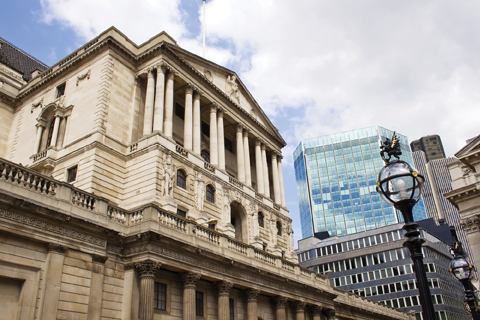Experienced Investor
Bond funds for an interest rate rise

Although the Bank of England’s Monetary Policy Committee continues to defer interest rate rises, at some point the current abnormal monetary policy must come to an end.
Even if it doesn’t, there is relatively little value in conventional government and corporate bonds, and investors should think about diversifying their holdings. For those who want to retain some exposure to fixed income, what are the options?
Conventional bonds face two problems in the current environment: First, they tend to perform badly at times of higher interest rates. Most bonds – whether they are issued by governments and/or corporates – pay a fixed rate. If interest rates rise, this income becomes less valuable and therefore the price of the bonds falls. The same is true at times of higher inflation: Bond yields are fixed and therefore higher inflation erodes their value.
Secondly, corporate bonds do not trade like stocks. They tend to be traded ‘over the counter’ and therefore there is no guaranteed market for them. This means that liquidity can evaporate at difficult times and they can be difficult to sell. If interest rates rise, putting pressure on corporate bonds, there is a danger that the sector sees a disorderly sell-off. It should right itself in the end, but it may be painful for investors in the interim.
Investors have had to endure bonds paying a low income relative to history. However, many have been content with this, as long as their capital kept growing. Fewer may be willing to hold on if their capital is at risk. With that in mind, we ask two fund selectors to pick their bond fund choices for higher interest rates:
Gavin Haynes, investment director, Whitechurch Securities
“I would pick the M&G Global Floating Rate High Yield Bond fund. This is a new launch – September 2014. It is run by M&G’s well-regarded bond team and invests in bonds where the rate moves up with interest rates. It should offer investors some protection against rising rates, but in the meantime is still predicted to generate an income of around 4 per cent.”
“Absolute return bond funds go a bit further, enabling managers to go short (i.e. bet against) areas of the bond market. These funds offer more flexibility, but investors are not strictly buying the asset class and may not always pay an income. In this area, we like the Ignis Absolute Return Government Bond fund in spite of its recent tough year.”
Tom Beckett, chief investment officer, Psigma
“I would pick the Neuberger Berman Global Floating Rate Income investment trust. This invests in US high yield floating rate note bonds. The coupons are linked to the Libor rate and therefore should protect against interest rate rises. These bonds are normally higher up the capital structure and therefore will get paid first in the event of a default by the issuing company, so are slightly safer than conventional high yield.”
“I also like the TwentyFour Income fund – also an investment trust, managed by bond specialists TwentyFour Asset Management. This invests in European Asset-backed securities and also some floating rate notes. Again, the coupon on the bonds should rise and fall in line with interest rates.”